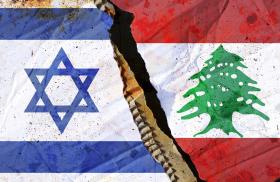Iran's move yesterday to restart work at the controversial Natanz uranium enrichment plant is extremely rash. Even the normally urbane Mohammed El Baradei, the head of the International Atomic Energy Agency, said "the world was running out of patience" with Iran.
Tehran, under the leadership of President Mahmoud Ahmedinejad, appears to be heading for a major confrontation with the international community. In the last week, he had been warned against such a move by each individual permanent member of the United Nations Security Council -- the US, Russia, Britain, France and China.
For the puzzled, a brief lesson in nuclear science and geopolitics. Enriching uranium using centrifuges is the best way of making "highly enriched uranium," the basis of an atomic bomb if abruptly compressed using a conventional high explosive trigger.
Iran's excuse is that it wants to use centrifuges for a shorter time to make less-than-highly-enriched uranium for use in a nuclear power plant. Nobody believes it, partly because of Iran's bellicose statements and partly because the country is blessed with the largest reserves of cheap gas in the world -- bar Russia -- and doesn't need expensive nuclear power.
Israel is the focus of Ahmedinejad's increasingly vituperative comments and the target of Iran's missiles carrying banners proclaiming "Israel should be wiped off the map." But the rest of the Middle East is also running scared because of Iran's behaviour.
The issue dominated a summit meeting last month between Saudi Arabia and other Gulf Arab states.
Iran says it has the right to enrich uranium. Well, yes. But it doesn't have the right to keep the Natanz project secret for many years as it did until it was discovered in 2002.
An arsenal of bombs might still be months if not years away. Nobody outside Iran really knows. North Korea's untested nuclear weapons already threaten Japan. Adding Iran to the uncertainty is not to be welcomed.
So what can be done? Jack Straw is off to Berlin tomorrow to meet his French and German counterparts. The world doesn't appear to be holding its breath for dynamic action from that session.
More attention should be paid to Washington. Vice President Dick Cheney's advisers are said to view Ahmedinejad as a young Stalin. Inaction would enable the monster to grow bigger.
Israel's focus is temporarily distracted by the infirmity of Ariel Sharon.
A massive military assault, even invasion, is out of the question. The US knows its limits. A surgical strike against Natanz and other selected targets, said to number around 40, remains a possibility.
Simon Henderson is senior fellow at the Washington Institute for Near East Policy.
The Evening Standard



